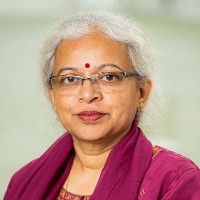
Reimagining human development
Last year’s Human Development Report (HDR 2019) focused on equity and the importance of going beyond income and averages. The next step would be to focus on empowerment and equal opportunity. Indeed, looking back over the past three decades, it is apparent that people thrive when they feel, and are, empowered. For instance, the issue of energy access cannot just be about creating supply opportunities and leaving it at that. The poor and marginalized need to be empowered actively, and opportunities need to be created consciously, so that these segments of society can access good quality energy in quantities commensurate with their needs, whenever they want.
Alongside empowerment and opportunity, dignity and respect are crucially important but do not receive sufficient attention. The design of empowerment measures should be such that those who are the target of such measures are able to feel and exercise their rights. Yet, present-day policies and governance, technology development, and pathways towards sustainability – indeed, the structure of society itself – are not a priori designed for inclusiveness. Treating the marginalized sections of society with the dignity and respect they deserve, and ensuring their full and equal participation in development, are often an afterthought.
Consider driverless cars and robots. Technology firms tend to design these solutions for the richer segments of society around the world, where ageing populations are coupled with declining pools of labour. It is up to governments then to regulate the use of such technologies to minimize unintended consequences – including the prevention of wealth concentration. However, economic compulsions and stakeholder interests often take precedence. The consequences of introducing such aspirational technologies on the poor rarely enter the equation, and they are left to adapt the best they can.
The digital economy, too, is a case in point – this economy is not designed for the poor, particularly the illiterate and elderly, or women. The concept of fit-for-purpose does not exist for low-income groups. Similarly, disaster preparation and adaptation often does not apply to all people. The ill, aged and the very young may be missing from plans. This may not be deliberate, but design has always focused on the fittest – physically or economically.
Changing the ground rules
Part of the problem is that the poorer sections of society do not have the capacity to pay. Thus there is little incentive in innovating for them, which puts them at a further disadvantage. Exiting this vicious cycle requires an institutional mechanism that will prioritize the poor and their needs, as well as ensuring that catering to their needs is remunerative. Only then can the desire to leave no one behind become a reality. It may be time to set up an equal opportunity watchdog, for lack of a better word. The core responsibility of such a watchdog would be to ensure inclusivity in all societal endeavours, be it the development and deployment of intellectual property, rules for international trade or the use of public funds for various activities.
Public funds have a role to play in creating equal opportunity and empowerment. Governments support many private sector activities, and various regulations reward economic activity, innovation and entrepreneurship. It is certainly possible to design specific incentives and put in place specific rewards to facilitate empowerment and opportunity creation. This is not about creating a system of reservations or quotas: it is about removing barriers and recognizing that doing so today may lead to rewards tomorrow. Such rewards should be recognized and rationalized to move towards human development for all.
It is also important to involve citizens themselves in reimagining human development such that it is inclusive and speaks to their needs and aspirations. Citizen science approaches could be effective in this regard: given the right types of questions and the right design, it should be possible to quickly mobilize responses from a wide range of people.
Measuring empowerment and opportunity
Evaluating whether and to what extent people have been empowered is not the same as measuring other aspects of human development: for example, taking a few billion people out of poverty or placing a few million more in classrooms speaks to quantitative performance but not to the qualitative or sustaining nature of performance. That said, it should be possible to come up with indicative ways of evaluating the efforts made to empower people and create equal opportunity in relation to such poverty and education data if we moved further up-cycle and investigated the job market and/or the regulatory environment around societal safeguards. The flow of public funds, for example, could be deconstructed to gauge the percentage of the funds that are leading to issues that have direct impact on increased empowerment and opportunities.
Take intellectual property, for example the development of a vaccine for COVID-19. Typically, one would assume that a vaccine would be available to everyone who needs it. But, as we know, availability by itself does not guarantee accessibility. Something else, something more, needs to be done for that to happen. Again, it should be possible to work this out and create the right types of metrics that enable us to assess whether a particular community has been empowered and provided with the requisite opportunities.

Leena Srivastava is IIASA Deputy Director General for Science. Her research in the last three decades has been in the areas of energy, environment and climate change policies.